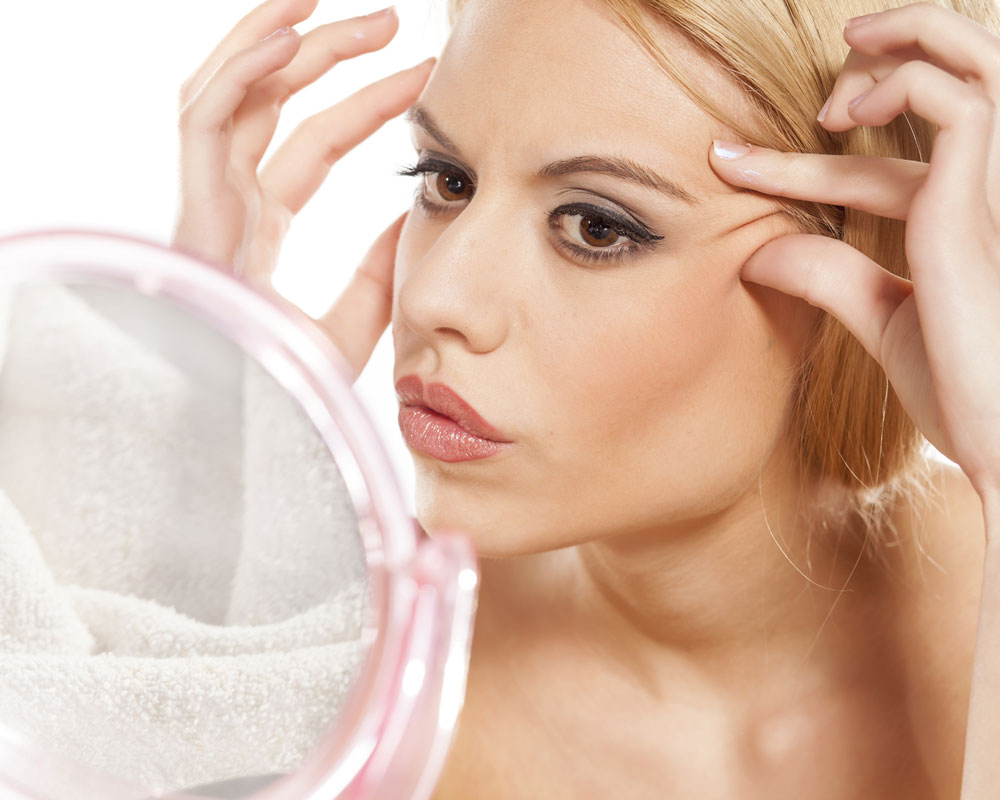
It’s the dark secret every woman knows:
If you’re pretty, life is easier.
Pretty privilege explains why the pretty girls get to be homecoming queen, class president, and girlfriends of athletes.
Pretty privilege explains you spent so much time in front of the mirror (or your phone camera) as a teenager, trying to make yourself look just right.
Pretty privilege explains why the Instagram accounts of hot female celebrities like Selena Gomez or Emily Ratajkowski number in the tens of millions…
While the accounts of plain but inspirational women like Gloria Steinem or Malala are lucky to break a million.
Beauty is bankable.
And now science has proven it.
Economist Daniel S. Hamermesh and colleague Jeff Biddle were the first to study the impact of attractiveness on wages. (They invented the field of pulchronomics, the economic study of beauty, in the process.)
They discovered—no surprise—that attractive people do have it easier.
If you’re more attractive than most, finding a job is a piece of cake. Businesses fall over themselves to hire attractive candidates, because it makes a difference to their bottom line. Customers respond better to good-looking salespeople.
Where I live, a local chain of coffee drive-thrus stole the market by hiring young, attractive baristas who bopped to high energy music while preparing lattes. They were cool, so their customers were cool, too.
We want attractive people representing us, because their visual appeal rubs off on us.
Which explains why the class beauty gets elected as class president, even though she doesn’t have the grades or accomplishments of the more normal-looking candidate.
If asked who is more capable—a girl of average attractiveness with glasses and a 4.0, or a beauty queen with a perfect smile and a 3.0—a surprising number of people would pick the beauty queen.
And this includes teachers. Teachers unconsciously favor attractive children over unattractive children, giving them just the kind of boost that helps them succeed academically. [1]
Attractive folks are perceived to be smarter, nicer, more confident, more capable, and more trustworthy with than their less attractive counterparts…
Even if NONE of that is true.
This is known as the “halo effect,” where one trait influences your perception of a person’s entire character.
The halo effect is particularly prominent in film. Ever noticed how the hero/heroine of a Disney film is always gorgeous, with a sparkling personality and heart of gold? The “bad guy,” on the other hand, is always ugly, with a personality to match.
Unfortunately, the halo effect isn’t just fiction.
It plays out in every area of life, from the job market to legal courts.
Attractive folks earn higher wages, earning them on average $230,000 more over a lifetime. They find it easier to get credit and get better deals on loans.
Being attractive pays off in other arenas, too. It can get you off the hook if you’re charged with a crime[2] or at the very least give you a lighter sentence.[3]
Hamermesh found that many people feel they’ve been discriminated against more because of their looks than their ethnicity or national background.
Do you think that being attractive is more important than where you come from or the color of your skin?
It’s an uncomfortable question.
Particularly since Hamermesh found you can do very little to affect how you’re perceived by others.
Decades of advertising by cosmetics and fashion companies have led most of us to believe that attractiveness is within our reach. All it takes are the right products, the right hair style, the right clothes, and the right diet.
But spending more on cosmetics won’t help you earn more at what you do. Studies have found that you’ll only earn about 4 cents more for every dollar you spend on cosmetics.
Perhaps what’s required is a major boost in attractiveness, the kind afforded by cosmetic surgery.
Transgender activist Janet Mock experienced this for herself. She found that she was treated differently once she began her transition and presented as a “normal” cis girl. She describes what it was like in an article for Allure:
Suddenly, I was let in, and I did nothing to earn the attention my prettiness granted me. I soon saw that people stared and smiled, offered me seats on the bus and drinks in the club, complimented me on my appearance, and held doors open. This was partly how I experienced pretty privilege—the societal advantages, often unearned, that benefit people who are perceived as pretty or considered beautiful.”[4]
She adds that even Oprah recognizes the phenomenon, telling her, “Pretty privilege is real, girl!”
I hope I’m not the only one, but I find that VERY disconcerting.
Are we all supposed to chase beauty, just because society rewards those who conform?
I prefer comedian Amy Schumer’s approach.
She thinks you should just believe you’re a supermodel and act accordingly.
In her 2018 movie “I Feel Pretty,” she plays an average-looking woman who’s unhappy with her looks. Then she gets knocked out when she falls off her exercise bike at the gym.
When she comes to, she’s in for a shock. She sees herself in the mirror and genuinely believes she’s drop-dead gorgeous.
Call it selective amnesia. She’s forgotten what the rest of the world finds beautiful.
Her newfound confidence gets her everything she dreamed of: the dream guy, the dream job, the dream life.
Perhaps what we’re missing, the movie implies, is confidence in ourselves. Confidence in our own skin. The kind of confidence that makes bosses and boys sit up and take a second glance.
And that, at least, is attainable by ALL of us.
Regardless of the body we’re born in.
[1] http://connection.ebscohost.com/c/articles/18831627/overcoming-student-stereotypes-about-physical-attractiveness
[2] https://www.sciencedirect.com/science/article/pii/0092656674900440?via%3Dihub
[3] http://journals.sagepub.com/doi/10.2466/pr0.1997.81.2.679
[4] https://www.allure.com/story/pretty-privilege




Let us know what you think!